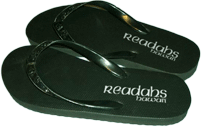posted by D. Sueoka

Westlake: Poems by Wayne Kaumualii Westlake compiles poems written between the late 1960s and 1984, when Westlake was killed in a car accident on the Big Island. It includes translations of Han Shan, concrete poems, a manifesto, and the series “Down on the Sidewalk in Waikīkī.”
These are poems about bugs, dogs, sex, politics, poetry, the land, the moon. Westlake’s Hawaiian heritage is in every line, but it is by turns proud, angry, and despairing. “I have a tradition / of literature / and ocean / behind me—“ he writes in “Realizing I’m a German.” Then, in “Native Hawaiian,”
how we spose
feel Hawaiian anymoa
barefeet buying smokes
in da seven
eleven stoa . . . ?
The haunting “The Name of the Game” captures the absurdity and violence of Waikīkī. It describes how Westlake, a janitor, came to work one morning and discovered that the previous evening, a crazy man had crashed through a plate glass window, run all over the store, then bled to death in the bathroom. “the guy must have tried / to stop the bleeding / using two old / slimy sponges // no way,” Westlake writes. He got $10 for cleaning it up.
His rage at the brutalization of the land is tempered by the playfulness and irreverence of the haiku and many of the short poems. For instance, there’s the wonderfully Buddhist gesture in “salting the wound”:
after the poetry reading
i find a poster with
my name on it—
i rip the poster
down!
Westlake tends to break his lines at the phrase, which sometimes causes their energy to sag. And a handful of the shorter poems feel like they were built around a punchline—the final one or two lines that turn the rest of the poem on its head. (If you think concrete poems like “Huli” and “Pupule” are just visual puns, however, please read the afterword, which reveals how rich they are.)
It’s in the concrete poems especially that he shows how local writing can engage with—“indigenize,” as editor Richard Hamasaki says in the afterword—artistic movements outside Hawai‘i. Even if it’s sometimes just to ask, “Eh, like beef?”
I hope that Hamasaki’s afterword, footnotes, bibliography, and catalog of the unpublished manuscripts encourage people to study and publish on Westlake’s work. More importantly, I hope that Westlake inspires people to live joyfully and to write, write, write!
My reaction to this strong, exuberant collection: “Ho!”
Westlake: Poems by Wayne Kaumualii Westlake
Edited by Mei-Li M. Siy and Richard Hamasaki
University of Hawai‘i Press, 2009
275 pages




